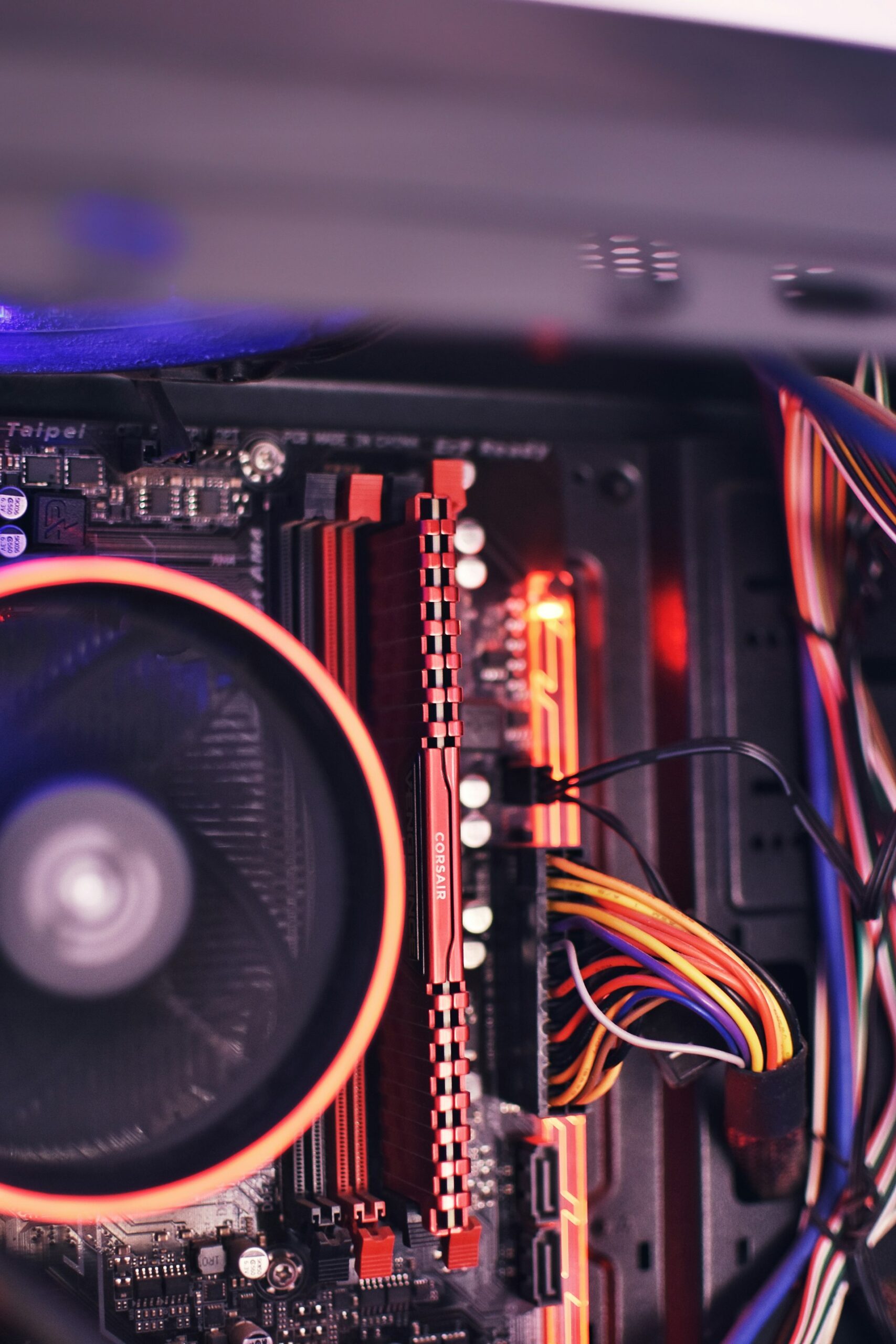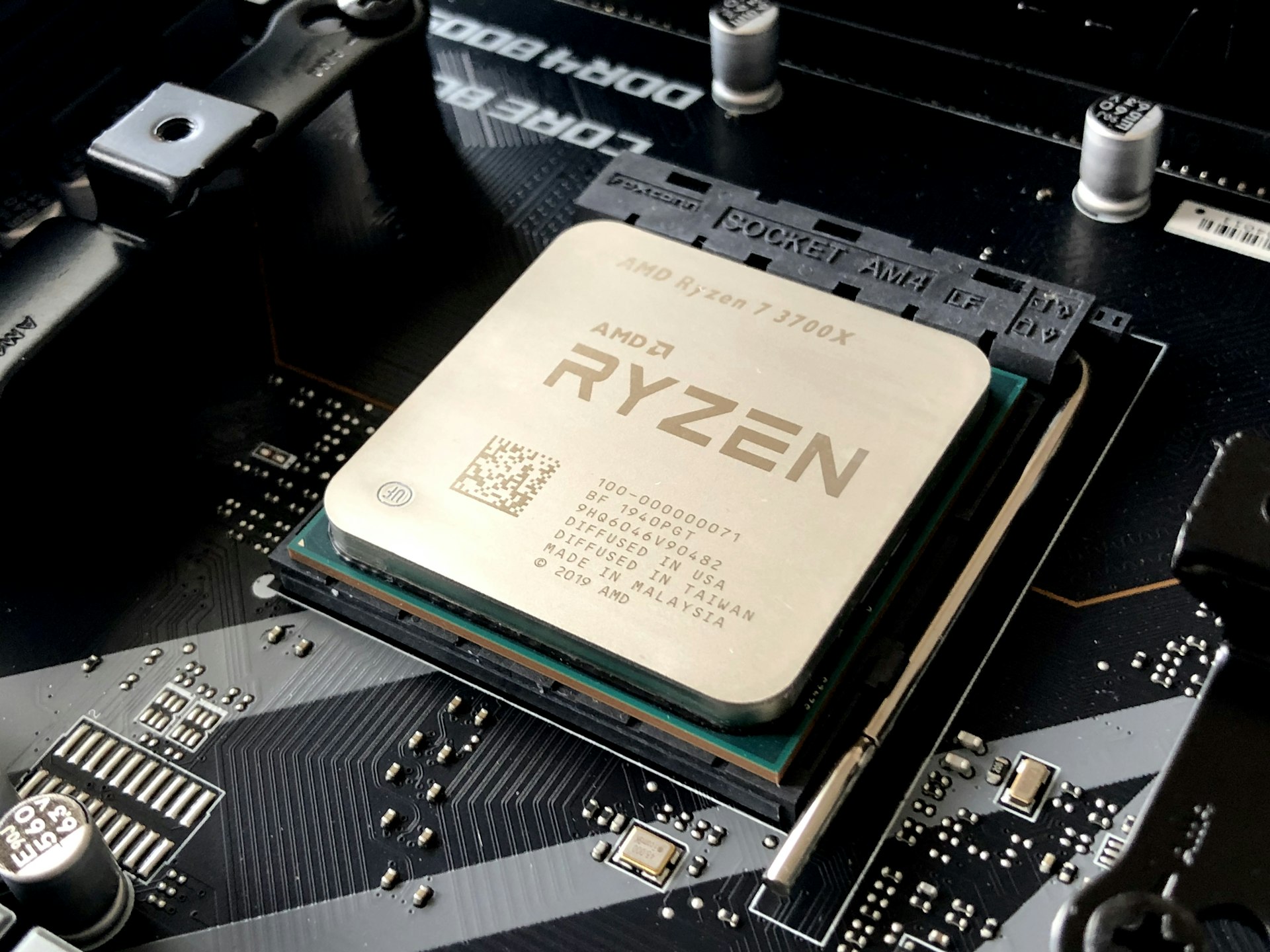Choosing the Right Processor and Laptop for Gaming: A Comprehensive Guide

Photo by Olivier Collet on Unsplash
Understanding Processor Performance for Gaming
When selecting a laptop or desktop for gaming, the processor (CPU) is one of the most critical components. Different CPUs cater to various needs, ranging from light, casual gaming to running the latest AAA titles at high settings. This section explores several widely discussed CPUs: Intel Core i7, Intel Celeron, AMD Ryzen 5 5600X, and AMD Ryzen 9 5900X, detailing their suitability for gaming with examples and practical advice.
Is Intel Core i7 Good for Gaming?
The Intel Core i7 series has long been recognized for its strong performance, balancing high clock speeds, multiple cores, and efficient multitasking. For gaming, recent generations of Core i7 CPUs deliver excellent frame rates even in demanding titles when paired with a capable graphics card. For example, an 11th or 12th generation i7 can easily handle titles like “Call of Duty: Warzone” and “Cyberpunk 2077” at high or ultra settings, provided the GPU is also sufficient. Users seeking smooth gameplay in modern games should prioritize at least a quad-core i7 from recent generations. However, older i7 models may show their age in newer games, so confirm the specific model and generation before purchasing. If you are configuring or buying a gaming laptop or desktop, look for i7 CPUs from the last 3-4 years for the best results [1] .
To access the latest i7-powered systems, visit the official websites of major PC retailers or search for “Intel Core i7 gaming laptops” to compare current models and specifications.
Is Intel Celeron Good for Gaming?
The Intel Celeron line targets budget buyers and basic computing needs. While Celeron processors are energy-efficient and affordable, they lack the raw power and multitasking capability needed for modern gaming. Most Celerons have only two cores and low clock speeds, resulting in significant limitations when running contemporary 3D games. Users report that Celeron CPUs can handle older or less demanding games, such as “Minecraft” or browser-based titles, at low to moderate settings. However, performance drops sharply with anything more demanding, and compatibility with newer games is often an issue. For most users, upgrading to at least an Intel Core i3 or AMD Ryzen 3 is recommended if gaming is a priority [2] , [4] .
If you already own a Celeron-based laptop and wish to play games, focus on classic or indie titles with very modest hardware requirements. For new purchases, seek out systems with higher-tier CPUs for a better gaming experience.
Is AMD Ryzen 5 5600X Good for Gaming?
The AMD Ryzen 5 5600X is widely regarded as a highly capable gaming CPU. Featuring six cores and twelve threads, it offers a strong balance of single-threaded and multi-threaded performance, which translates into excellent frame rates in most modern games. Paired with a mid-to-high-end graphics card, the Ryzen 5 5600X can run demanding titles like “Red Dead Redemption 2” and “Assassin’s Creed Valhalla” at high settings and resolutions. Its efficiency and value make it a popular choice among gamers building a cost-effective yet powerful system. If you are considering a desktop upgrade or new build, the Ryzen 5 5600X is a safe bet for gaming performance well into the future.
To purchase a system with a Ryzen 5 5600X, consult reputable PC retailers, use system configurators, or search for “Ryzen 5 5600X gaming desktops” for available options from trusted brands.

Photo by Andrey Matveev on Unsplash
Is AMD Ryzen 9 5900X Good for Gaming?
The AMD Ryzen 9 5900X is a high-end processor with twelve cores and twenty-four threads, making it one of the most powerful consumer CPUs for gaming and productivity. While the extra cores benefit tasks like video editing and 3D rendering, for pure gaming, the Ryzen 9 5900X excels in providing consistently high frame rates in even the most demanding titles. It is particularly advantageous for gamers who also stream, multitask heavily, or use their PC for creative workloads. However, for strictly gaming, a Ryzen 7 or Ryzen 5 CPU may offer similar performance at a lower price, unless you want future-proofing or additional performance headroom.
To explore systems with the Ryzen 9 5900X, visit major computer retailers or use custom build services to configure a gaming rig that matches your needs.
Graphics Cards for Gaming: AMD Radeon and Alternatives
Graphics processing units (GPUs) are essential for gaming performance. AMD Radeon graphics cards offer competitive performance, especially in the mid-range and high-end segments. Models such as the Radeon RX 6600, RX 6700 XT, and RX 6800 XT provide smooth gameplay in most current games at 1080p, 1440p, and even 4K resolutions when paired appropriately. Radeon cards also support advanced features like ray tracing and AMD’s FidelityFX Super Resolution, which can enhance visuals and performance. While NVIDIA GPUs still lead in some areas, Radeon cards offer excellent value and are widely used by gamers worldwide.
When choosing a graphics card, check the recommended system requirements for the games you intend to play. For the latest Radeon GPUs, visit AMD’s official website or check with leading PC component retailers for availability and compatibility information.
Laptops for Gaming: HP, Gaming Laptops, and MacBook Air
Laptops designed for gaming vary significantly in performance and features. Here’s what to expect from some of the most commonly asked-about models and brands.
Are HP Laptops Good for Gaming?
HP manufactures a range of laptops, including the Omen and Pavilion Gaming series, specifically engineered for gaming. These models typically include dedicated GPUs (like NVIDIA GeForce or AMD Radeon), high-refresh-rate displays, and efficient cooling solutions, making them suitable for most games at medium to high settings. However, general-purpose HP laptops-such as the HP Envy or HP Pavilion (non-gaming)-often use integrated graphics and entry-level CPUs, limiting their gaming capabilities to lighter or older titles. Always verify the specific model and its hardware before purchase.
For the best gaming experience, look for HP laptops labeled as “Omen” or “Pavilion Gaming” and compare their CPU, GPU, and RAM specifications. You can find current offerings on HP’s official website or through major electronics retailers.
Are Gaming Laptops Good?
Gaming laptops have improved dramatically in recent years, narrowing the gap with desktop performance. Modern gaming laptops feature high-performance CPUs, dedicated GPUs, fast storage, and advanced cooling systems. This makes them suitable for playing the latest games at high settings, streaming, and even creative work. The main trade-offs are price, battery life, and portability-gaming laptops are often heavier and more expensive than non-gaming models. For users prioritizing mobility and gaming power, a gaming laptop can be an excellent choice. Compare brands like ASUS ROG, MSI, Alienware, and HP Omen for a wide range of options.
Is MacBook Air Good for Gaming?
The MacBook Air , especially models with Apple’s M1 or M2 chips, delivers impressive performance for general productivity and light creative tasks. However, it is not optimized for gaming. The MacBook Air uses integrated graphics and lacks a dedicated GPU, which limits its ability to run modern games at acceptable frame rates or high settings. While some less demanding titles and many indie games are playable-especially those available on macOS or through cloud gaming services-AAA games and those requiring Windows or DirectX support will have limited compatibility and reduced performance. For users seeking to play modern, graphics-intensive games, a Windows-based gaming laptop or desktop is recommended.
If you still wish to game on a MacBook Air, consider using cloud gaming services (such as NVIDIA GeForce NOW or Xbox Cloud Gaming) or focus on titles available through the Mac App Store and Apple Arcade.
How to Choose the Right Device for Gaming: Step-by-Step Guidance
Finding the best gaming device depends on your budget, preferred games, and portability requirements. Here’s a step-by-step approach:
- Define Your Gaming Needs: List the games you want to play and note their recommended system requirements. Consider if you value portability (laptop) or maximum performance (desktop).
- Set a Realistic Budget: Determine how much you are willing to spend, including potential upgrades (RAM, storage, peripherals).
- Research Processor and GPU: For modern games, prioritize recent Intel Core i5/i7/i9 or AMD Ryzen 5/7/9 CPUs, and a dedicated GPU from NVIDIA or AMD.
- Compare Models and Brands: Look up reviews and benchmarks for your shortlisted devices. For laptops, check thermal performance and battery life. For desktops, consider upgrade options.
- Purchase from Reputable Sellers: Use major electronics retailers, official manufacturer websites, or trusted third-party vendors. Always verify warranty and return policies.
- Check for Discounts or Educational Pricing: Some brands offer student or seasonal discounts. Visit official manufacturer sites and search for current promotions.
Key Takeaways and Alternatives
For most gamers, an Intel Core i7 or AMD Ryzen 5/7/9 CPU paired with a dedicated GPU offers the best experience. Avoid entry-level CPUs like Intel Celeron for anything beyond the most basic gaming. HP’s gaming laptops, purpose-built models from brands like ASUS and MSI, and desktops with upgradable parts provide solid options. If you need to use a MacBook Air, explore cloud gaming or focus on lighter titles. For comprehensive support, search for the official support pages of your chosen brand, consult user reviews, and join online gaming communities for the latest advice.
References
- [1] Versus.com (2023). Intel Celeron N4020 vs Intel Core i7-6920HQ: Performance comparison.
- [2] Versus.com (2023). Intel Celeron N4000 vs Intel Core i7-1255U: Gaming and CPU ranking.
- [3] PCPartPicker (2022). Intel Celeron good for budget gaming? Community experiences.
- [4] Lenovo (2024). What are the Advantages of Using Intel® Celeron® Processors?
MORE FROM savvysc.com













